The Spanish fashion designer Cristobal Balenciaga would have been particularly visible in the fifties. A great couturier, he laid the principles of the art of high sewing, which has not lost its meaning today. Of course, over time, the heritage of Balenciaga has undergone some changes to survive in the new world. Still, the basic idea of rebellious boldness and protest remained in the modern collections. This essay aims to analyse the current Balenciaga Triple S sneakers collection, a defining era of the second half of the last decade.
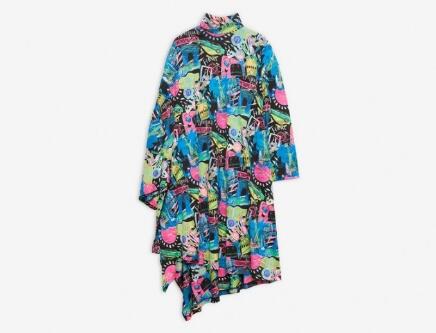
Over the past few years, the popularity of the fashion house Balenciaga has reached its peak: it has attracted the attention of celebrities and young people, becoming one of the best-selling brands.
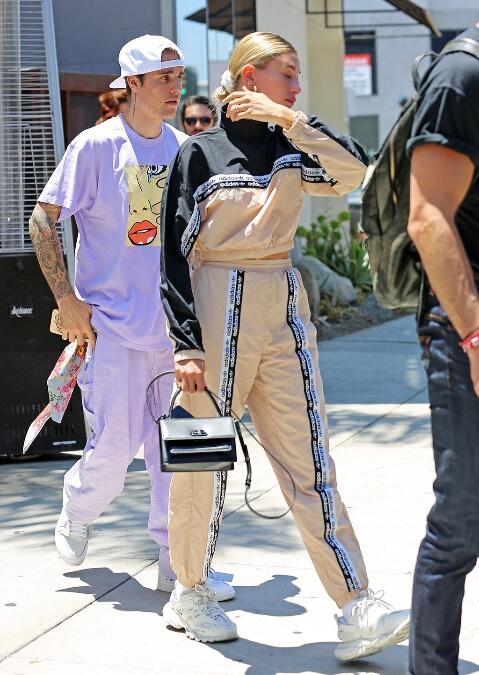
In 2015, the management of Kering, which owns brands such as Gucci, Yves Saint Laurent and Alexander McQueen, appointed Demna Gvasalia as a designer of Balenciaga (Greer, 2018). The Georgian designer became famous for his oversized clothes and sweatshirts that captured the atmosphere of the New York streets (Greer, 2018). From the first collections, Gvasalia, like a surrealist artist, began to play with shapes and proportions in the best traditions of Cristobal Balenciaga.
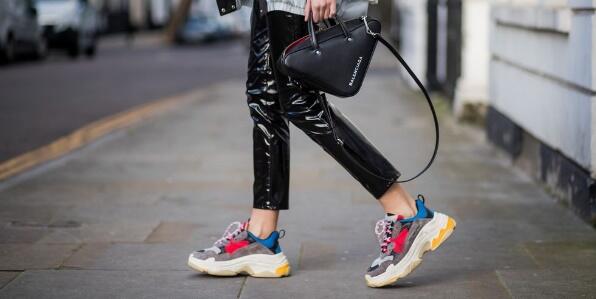
The new features of the fashion house were logomania and layering. As is often the case, ideas that at first made a mockery of critics have brought the brand a prominent name among young people: Demna Gvasalia has succeeded in winning the attention of millenniums and young people.
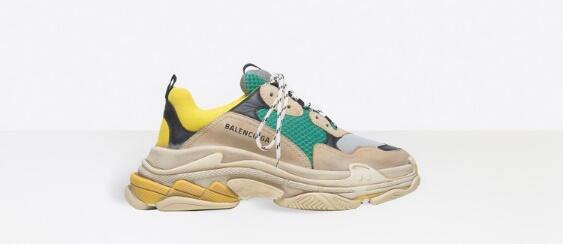
The generation of the second half of the last decade are people who want to stand out and do not accept the laws of the classics. It is an era of hyperbolic and ubiquitous exaggeration, a mockery of politicians and the possibility of World War III on the Internet, as well as a collective escape from reality. As if to justify such behaviour of modern people, Balenciaga releases as much as possible beyond the usual sneakers.
Sneakers Balenciaga Triple S surprised everyone with their boldness, appeared in stores in 2017 (WWD Staff, 2019). At first glance, it may seem that the sneakers are unkempt or dirty, but this is the best description of the young rebel generation. Massive sole, hypertrophied cushioning, thick laces, many, often excessive top details, sometimes screaming colours, in combination with the concept of excessive use of the brand labels, as a matter of fact, the millenniums.
Just ten years ago, it was hard to imagine that sports shoes – massive, rough and sometimes unpleasant – would become widely popular and become a global trend. Bright, durable and fashionable “ugly shoes” make any image unique and daring (WWD Staff, 2019).
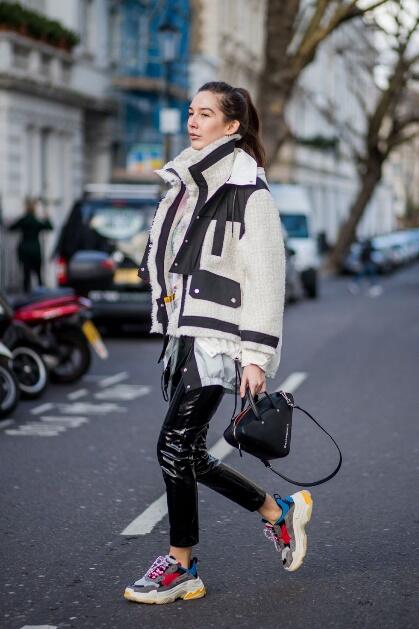
In this case, the palette of Balenciaga Triple S sneakers is annually updated with new colours. Today any customer can find versions with metallized leather, neon-yellow, pistachio, classic white or black sneakers. In an era of abundance, the consumer wants to make a choice, and Demna Gvasalia gives it to them.
As it usually happens, designers, Balenciaga, has foreseen future trends or, to be precise, created them. Today it is rare that an actual collection, whether it is from a local brand or a famous fashion house with a century-long history, does not do without a pair of shapeless and deliberately absurd sneakers. Much of what was fashionable in the past today seems ugly or at least strange to us. It is possible that after twenty or thirty years, the same phenomenon will not be observed among new generations of people. Still, it is worth understanding that today’s oversize things and “ugly” sneakers incredibly describe our era: a time of audacity, flair and individuality.
References
Balenciaga. (2020). Web.
Brittany, A. (2019). How to rock ugly sneakers. Web.
Chochrek, E. (2019). Hailey Baldwin and Justin Bieber show off their ’90s-inspired style at Church. Web.
Greer, J. (2018). A short history of Balenciaga.
WWD Staff (2019). Demna Gvasalia on appropriation, ‘ugly’ sneakers and the curse of pre-collections.